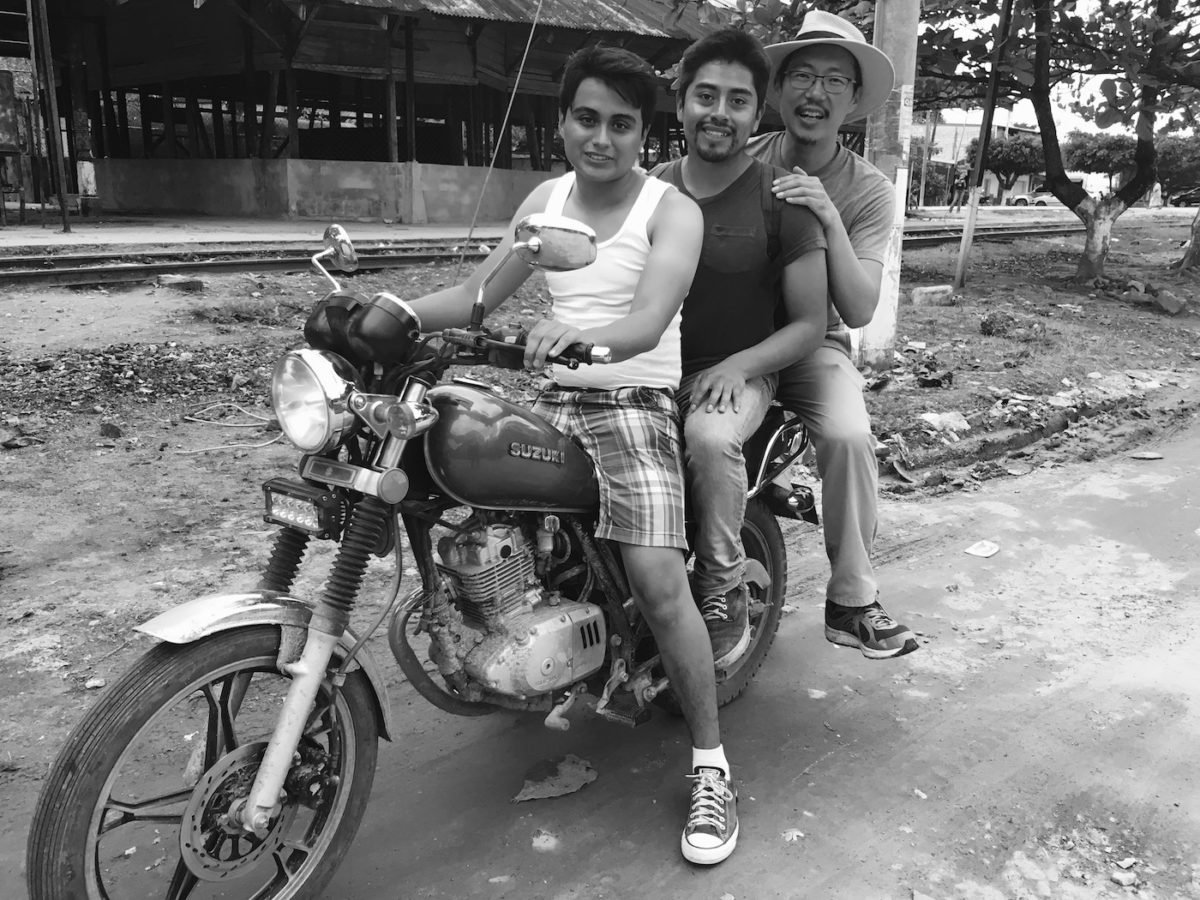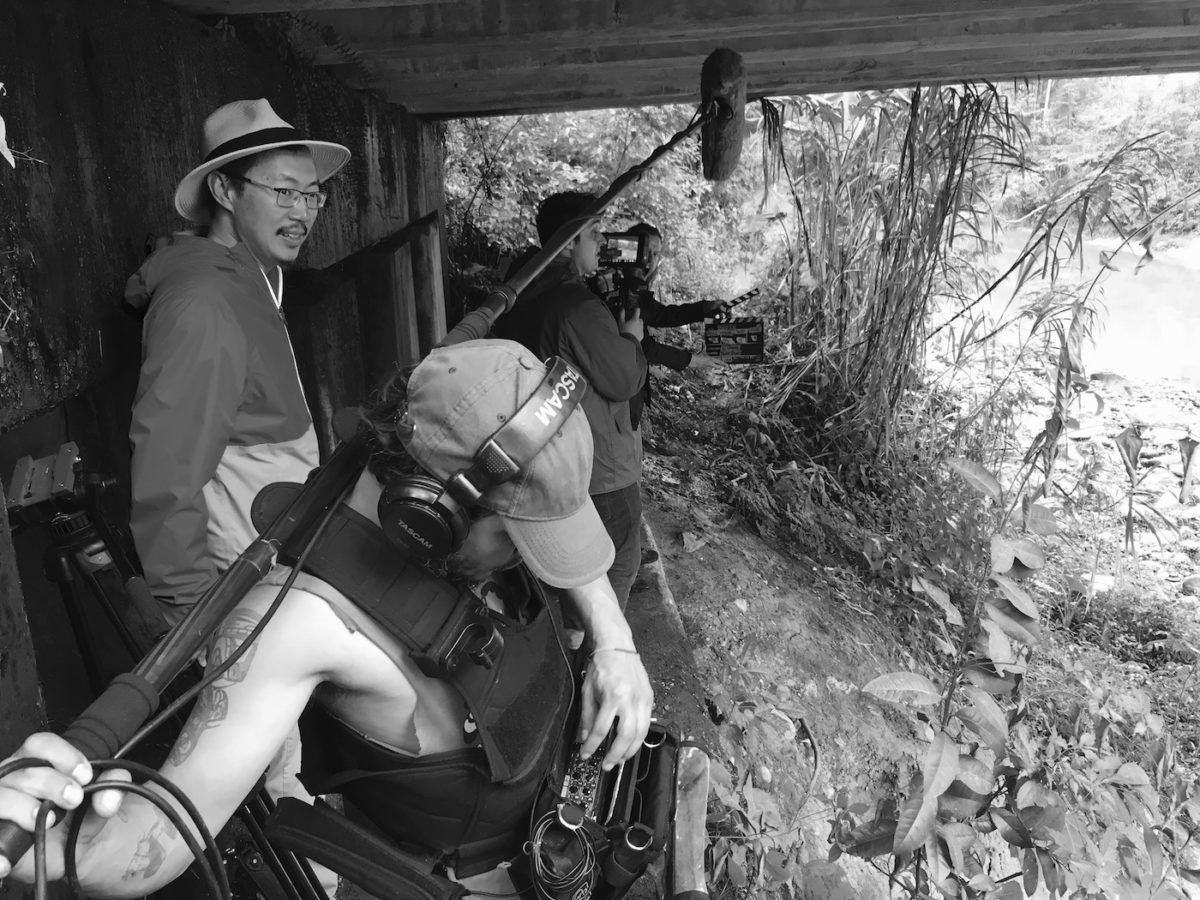Why, against all odds, would a well-known Chinese-American cancer researcher quit bio-tech, move to Latin America, and spend only his own money to make “José,” a queer-themed film?
Simply put, because it’s urgent. And, as LGBTQI+ people, we know what it’s like to suffer — We also know that we can only exist if we rise up and resist.
“José” was sparked from my anger and disappointment in the world situation today – Why, for example, would mothers risk it all with their children to flee their homelands to seek relief at the USA border?

Director Li Cheng, right, and actor Enrique Salanic, center, work on location in Guatemala for the film “Jose,” a queer love story. Photo: YQstudio LLC.
‘José’
“José” develops along two main strands: On the surface, the crisis of love amongst the dating app culture; and more deeply and metaphorically, the crisis of social-political-economic systems that are failing most of the people – especially women, young people, minorities, working-class people, displaced people, elderly people, and people in poverty.
I did this project because I have things to say that I believe are vitally important, and I’m lucky enough to be able to speak out. Whereas the type of people and stories that “José” highlights are not the ones usually featured in media and popular culture, so it presents both a grave responsibility and an open opportunity.
Queer love story
“José” is a queer love story, framed by our fragile world. In the multiple crises of today’s realities, the film asks for a return to life’s essential elements: What are the most important things in life and How will we care for each other in our personal lives, in our family lives, and equally in our shared societal lives as one human family?

Director Li Cheng, left, works on location in Guatemala for the film “Jose,” a queer love story.
Researching the story
Since the USA political rhetoric about “south of the border” is so toxic and disconnected from reality, I grounded “José” in careful research in a dozen Latin American countries (I started in August 2016 in Brazil). I decided to film in Guatemala due to extreme homophobia, and one of the youngest populations — Half the people are under age 19. (“José” actor Enrique Salanic wanted to visit the U.S. to promote the film, has been denied entry to the U.S. twice).
However, “José” describes general realities that exist across dozens of countries in Latin America, Caribbean, Africa, Middle East and places in Europe and Asia, too.
To find the typical stories, I interviewed young people about their hopes and dreams and about who they’re closest to in life, and about first love.
Filming style
I use a “realist” art-house cinema style to emphasize honesty and normalize the day-to-day violence from years of civil war, and the daily struggles simply for food and shelter. This style set aside the usual high-drama styles of Hollywood and telenovela films common in Latin America.
I worked as the Italian neo-realists did following World War II, when there were urgent stories to be told, but little time and resources available.
“José” will open in New York January 31, Los Angeles and Chicago February 7, and more cities in the weeks that follow.
